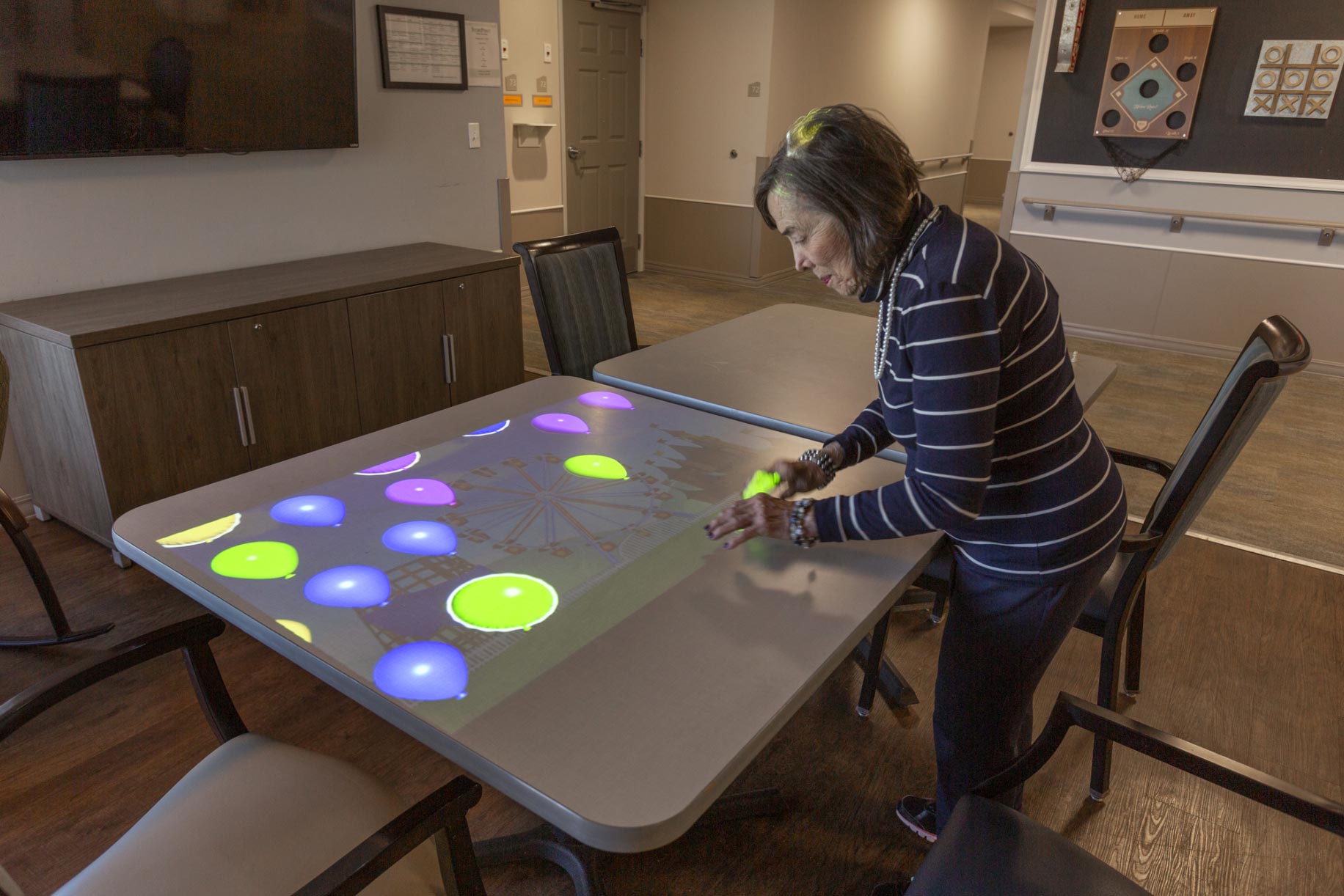Specialized Memory Care Services Via Alzheimers Care Charlotte Facilities
Specialized Memory Care Services Via Alzheimers Care Charlotte Facilities
Blog Article
Thoughtful Alzheimer's Look after Your Enjoyed Ones
Identifying the psychological and mental demands of individuals affected by this problem is extremely important in improving their quality of life. As we discover the numerous techniques and techniques that can change caregiving into an extra caring experience, it becomes clear that the trip is as much regarding the caretaker as it is regarding the individual with Alzheimer's.
Recognizing Alzheimer's Illness
Alzheimer's condition is a modern neurodegenerative disorder that mostly impacts cognitive feature, resulting in amnesia, impaired thinking, and modifications in actions. It is the most usual type of dementia, representing 60-80% of all instances. The disease typically shows up in individuals matured 65 and older, although early-onset Alzheimer's can occur in younger people.
The pathophysiology of Alzheimer's includes the buildup of amyloid plaques and neurofibrillary tangles in the brain, leading to neuronal deterioration and synaptic loss. These changes disrupt communication in between mind cells, progressively hindering cognitive capabilities and daily functioning. Early signs and symptoms may include difficulty remembering recent events and obstacles in analytic, which can rise to disorientation and difficulty with language.
As the illness advancements, individuals might show profound memory deficits, confusion about time and place, and difficulty acknowledging loved ones. Behavioral modifications, consisting of withdrawal, anxiousness, and frustration, might additionally take place. Recognizing the scientific development of Alzheimer's is critical for caretakers and medical care service providers, as it informs effective monitoring approaches and treatments tailored to the needs of individuals influenced by this devastating condition.
The Significance of Compassionate Care
Thoughtful treatment is vital in supporting individuals with Alzheimer's condition, as it substantially improves their lifestyle. This approach focuses on the emotional and psychological wellness of patients, cultivating an atmosphere that promotes understanding, respect, and self-respect. Individuals with Alzheimer's often experience frustration, complication, and anxiety, which can be reduced via compassionate communications.
Compassion in caregiving not only aids in recognizing the special needs of each individual yet also enhances the caregiver-patient partnership. When caregivers approach their functions with concern, they create a secure space where people feel valued and comprehended, which can lower behavioral difficulties associated with the illness. This encouraging environment motivates far better communication and interaction, facilitating a much more reliable response to the care supplied.
Moreover, compassionate treatment expands past the patient; it also includes support for households. Caretakers that exercise compassion are extra equipped to deal with the emotional concern dealt with by liked ones, supplying confidence and advice via a challenging trip. Ultimately, the importance of compassionate care depends on its ability to change the caregiving experience, leading to improved results for both people with Alzheimer's and their families.
Practical Caregiving Methods
Efficient caregiving for individuals with Alzheimer's condition requires functional techniques that deal with the unique difficulties presented by the problem. Among the leading strategies is establishing a consistent day-to-day routine, which can give framework and familiarity, minimizing anxiety for both the person and the caregiver. Caregivers need to additionally simplify tasks by damaging them down into smaller, convenient steps, thus enhancing the person's sense of accomplishment and decreasing frustration.
Interaction is one more critical facet; caregivers should make use of clear, easy language and maintain eye call to promote understanding. Making use of aesthetic cues, such as images or labels, can better help understanding and navigation in the environment.
Security is paramount. Adjusting the space to remove risks-- such as installing or protecting rugs grab bars-- can aid avoid crashes. Additionally, caretakers should motivate freedom by enabling people to take part in familiar tasks, which can reinforce self-worth and promote wellness.
Psychological Support Methods
Psychological well-being is a vital component of look after people with Alzheimer's disease, as it directly affects their lifestyle. Alzheimers Care Charlotte. Supplying psychological support methods can significantly enhance their day-to-day experiences and foster a complacency and belonging
One effective method is energetic listening, which involves providing complete focus to the person, acknowledging their feelings, and responding with empathy. This method aids the individual really feel valued and understood, minimizing sensations of seclusion or aggravation. Furthermore, making use of validation treatment can be beneficial; as opposed to fixing false impressions, caretakers can affirm the person's experiences and feelings, advertising a calming environment.
Taking part in reminiscence treatment is another powerful method, allowing individuals to share tales, sensations, and memories linked with their past. This not only boosts cognitive feature yet likewise strengthens emotional connections. Including familiar music or art can additionally evoke positive feelings and stimulate joyful interactions.
Furthermore, making certain normal physical touch, such as holding hands or mild hugs, can offer comfort and confidence, enhancing emotional bonds. These techniques, when continually used, can produce a nurturing atmosphere that sustains the emotional health of people with Alzheimer's, improving their overall health.
Producing a Supportive Setting

Firstly, take into consideration the physical layout of the home. Clutter-free locations, acquainted furniture plans, and distinct paths can decrease complication and advertise mobility. Using comforting colors and appropriate lights can further improve the environment, making it extra inviting and less daunting.
Second of all, uniformity is essential. Preserving a foreseeable day-to-day regimen helps individuals with Alzheimer's feel a lot more safe and secure. Acquainted activities, regular meal times, and scheduled social interactions can dramatically lower anxiety and disorientation.
Additionally, sensory elements play a crucial function. Integrating acquainted aromas, songs, and responsive things can stimulate favorable memories and promote involvement. Individualizing the area with cherished photographs and meaningful objects can also foster a sense of identity.
Conclusion
Compassionate Alzheimer's care significantly enhances the lifestyle for people influenced by this dynamic illness. By prioritizing emotional well-being and implementing reliable caregiving approaches, caretakers can promote an atmosphere that promotes self-respect and belonging. Strategies such as energetic listening and establishing consistent regimens offer to minimize stress and anxiety while strengthening the caregiver-patient relationship. Inevitably, this technique not only provides essential convenience and support but additionally encourages people to navigate the intricacies of Alzheimer's with dignity and grace.
As we check out the numerous techniques and strategies that can transform caregiving right into an extra thoughtful experience, it go now becomes clear that the trip is as much regarding the caregiver as it is regarding the individual with Alzheimer's.

Thoughtful care is vital in supporting people with Alzheimer's condition, as it dramatically boosts their top quality of life - Alzheimers Care Charlotte. Eventually, the relevance of compassionate care exists in its capacity to transform the caregiving experience, leading to enhanced outcomes for both individuals with Alzheimer's and their family members
Compassionate Alzheimer's care dramatically enhances the high quality of life for individuals visit this web-site impacted by this dynamic condition.
Report this page